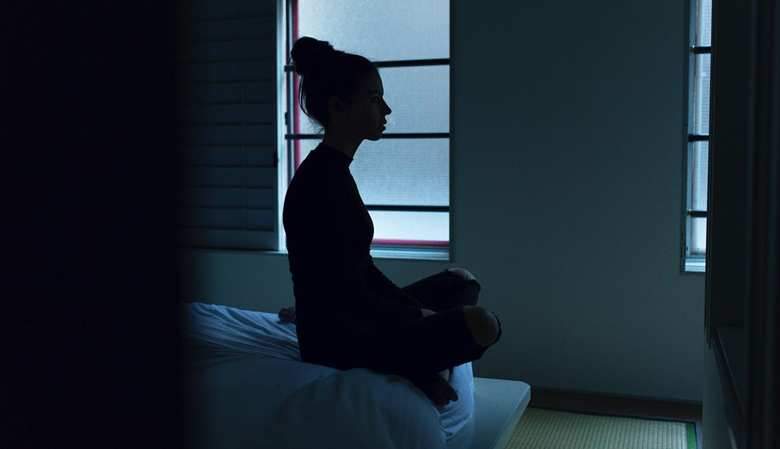Health /Lifestyles
Struggling to get some sleep even though you are tired ? Reasons why that happens and tips to get good sleep

News Mania Desk /Piyal Chatterjee/ 1st October 2024
Laying in bed but cannot catch any sleep?Perhaps you’ve had too much coffee, or your mind just won’t stop racing for which you cannot fall asleep even though you are tired . Sometimes you can’t sleep because of tension or your body isn’t synchronized because of an afternoon nap or too much screen time. It may seem odd, but these errors might make it hard to fall asleep at night. Although it can seem overwhelming, knowing what causes this restless mood is helpful. We’ve covered a few typical causes of fatigue that prevent you from falling asleep as well as suggestions for accelerating sleep.
- A disturbed circadian rhythm
Our internal clock, known as the circadian rhythm, controls our sleep and wake cycles throughout the 24-hour day. Your internal clock, however, becomes confused if you work night shifts or if your schedule is continually changing. You may feel exhausted as a result, but your body is not responding to your desire for sleep. - Napping at noon
Even while it could seem like a simple treatment to get rid of fatigue, napping in the afternoon can have unintended consequences. Midday naps, especially prolonged ones, have been shown to interfere with your ability to sleep at night by decreasing your sleep drive (Nature and Science of Sleep, 2013). Your body may not feel the need for sleep to enable you to fall asleep, even though you are exhausted at night. If you still want to take a nap, keep your power naps of 20-30 minutes just and nap at the same time every day so that your body can comprehend it. - Coffee
We all know coffee helps keep us awake, but sometimes, we misjudge just how long it lingers in our system. Caffeine use late in the day, even in the afternoon, can make it difficult for you to fall asleep at night. Even 200 mg of caffeine 16 hours before bed may have an effect on your sleep, according to research. - Anxiety and stress
Anxiety or stress are among the most frequent causes of insomnia. A study that was published in the Journal of Sleep Research states that stress causes your body to release hormones like cortisol, which can help you stay awake and attentive. Your mind might not stop buzzing with ideas, anxieties, or tomorrow’s to-do list. Even when your body feels exhausted, it is difficult to unwind and fall asleep because of this cerebral overload. Sleep is elusive because, basically, your body and mind are not communicating with one other. - Depression
Similar to anxiety, depression can cause a hyperactive mind at night. A review that appeared in the Journal of Cellular and Molecular Medicine claims that 90% of depressed individuals struggle to unwind because they are caught in negative thought patterns. Not only may depression cause sleep deprivation, but it can also cause sleep schedule irregularities. Some people with depression find that they sleep excessively throughout the day, making it difficult for them to get enough rest at night.
A few suggestions would be
- Steer clear of pointless contemplations
A racing mind is one of the biggest barriers to slumber. Instead than concentrating on your thoughts, pay attention to your breathing. Breathing deeply and slowly might help you relax mentally and physically. This exercise helps tell your brain when it’s time to unwind in addition to diverting your attention from thoughts.
2. Leave your bed.
It’s better to get out of bed if you’ve been lying there for what seems like an eternity and you still can’t fall asleep. Make an effort to engage in a relaxing activity, such as reading a book, relaxing music, or meditation. Just be sure that whatever you decide on is calming and devoid of bright lights or screens. - Take in a podcast
A decent diversion can sometimes be all you need to get your mind off of racing. You can take your mind off of your insomnia by listening to a calming podcast. Select anything that doesn’t thrill or energize you, is lighthearted, and has soothing tones.
4. Close off your electronics
The hormone melatonin, which aids in controlling sleep, is produced less frequently when exposed to the blue light emitted by laptops, tablets, and smartphones. Despite the allure, watching movies or browsing social media right before bed can keep you up later. Thus, put electronics away at least half an hour before going to bed. - Adhere to a regular nighttime schedule
Establishing a regular bedtime helps tell your brain when it’s time to go to sleep. Establish a bedtime routine that you adhere to, whether it involves reading, having a warm bath, or other relaxation techniques. Over time, these activities will help you sleep.






